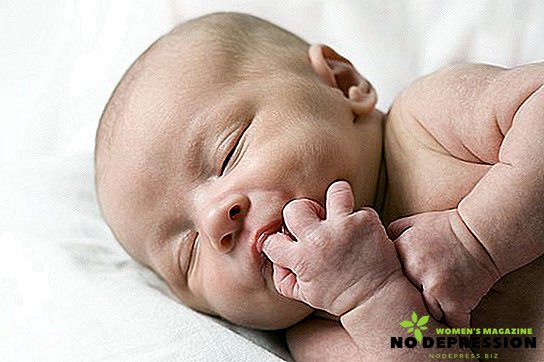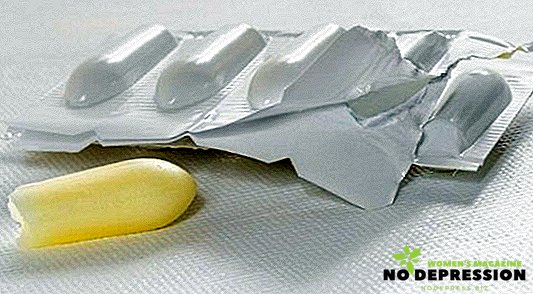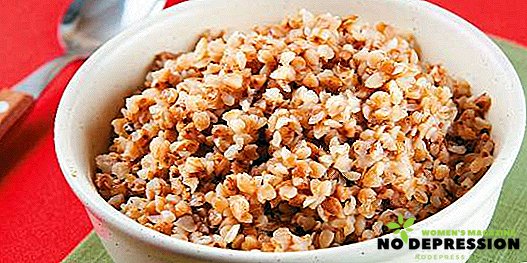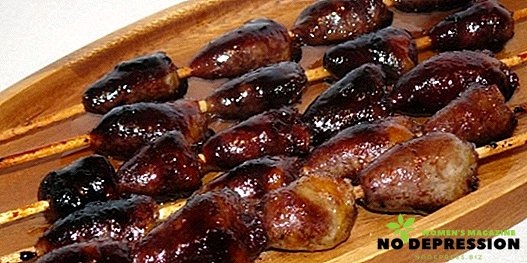Is it a bad habit for children to suck their fingers, is it necessary to wean the child away from her and how to do it correctly? In which case should consult a specialist? The article will provide answers to these questions.
Kind baby, focused sucking thumb, moving. The sight of a child of three or five years doing the same is alarming. Because the older a child is, the more hidden dangers to his neurology and psyche are the seemingly safe habit of thumb sucking. And the more time it will take to wean the child from her, and therefore, to remove the problems that cause it.

Why do kids suck their fingers?
Sucking fingers, or cheilomania, as some doctors and educators designate this habit (from the combination of the Greek words cheilos - lips and mania - attraction, passion), usually occurs in a child when he knows how to randomly get his fingers in his mouth, that is, at about age 3 months.
Thus, a congenital unconditioned food reflex is manifested, the first manifestations of which are observed even in the 12-week fetus. A newborn sucks his fist if he happens to be near his mouth.
If the child is less than a year old
In this case, it is worthwhile to increase the feeding time to 30–40 minutes (if the infant is on artificial feeding, use a nipple with a smaller opening). Perhaps the way out would be a dummy.
There are several other reasons causing sucking of a finger, cam, diaper in a baby younger than a year.
Hunger. If the baby begins to suck his finger for 10-20 minutes before the next feeding, it is worth to reduce the intervals between meals.
Teething. In this way, the baby calms itself due to the pain experienced and
trying to massage sore gums. It is better to offer him special teethers, previously thoroughly washed.
Disease. Constant sucking of a finger (diaper, blanket, pillow corner) may indicate health problems - hidden somatic diseases, weakened immunity, intestinal infections or neurological ones.
Between a year and five
Approximately 50% of children after a year cease to suck their fingers, for the rest, the habit persists up to 4-5 years. At this age, it ceases to be a manifestation of a congenital reflex and has other reasons and a different meaning - sucking a finger calms the child with grief, fatigue, fear, sometimes just entertains itself, being bored. Some children may also suck on a corner of a blanket, pillows, their tongue.
If this habit has "stepped over" from early childhood to the preschool period, or disappearing, it manifested itself after three years of age - this is a serious sign of the discomfort of a small person, the distress of his psychological state. There is a need to consult a specialist - a pediatric neurologist, a psychologist.
Is the habit dangerous?
Sucking fingers of children under 4 years of age by doctors and child behavior specialists is not considered a problem. It is necessary to find out the reason why this habit continues to occur.
Dental problems
If the child continues to suck his finger for longer than the specified age period, dental problems may arise. Cheylomania does not affect the physiological terms of the eruption of milk teeth. If you suck your finger too often, the growth angle of the teeth may change slightly: the upper ones will come forward and the lower ones will back.
But if this negative habit passes before the age of 4, the bite will correct without medical intervention. However, the longer it lasts, the higher the likelihood of serious and prolonged orthodontic treatment in the future.
Difficulties with the pronunciation of sounds
The development of speech problems is possible: the incorrect pronunciation of the sounds "d", "t", "c", "s", as well as the stretching of the language during a conversation and sigmatism.
Psychological problems
 The greatest problem is the psychological state of the baby, who continues to suck his finger after 5 years of age. Healthy preschoolers with mental health problems are already well aware that such actions of theirs cause rejection among others. If finger sucking continues at this age, it means that the child’s internal psychological problems are too great for him to be able to cope with them on his own.
The greatest problem is the psychological state of the baby, who continues to suck his finger after 5 years of age. Healthy preschoolers with mental health problems are already well aware that such actions of theirs cause rejection among others. If finger sucking continues at this age, it means that the child’s internal psychological problems are too great for him to be able to cope with them on his own.
In the psychological history, there may be a lack or lack of spiritual warmth on the part of parents, violence against the child or constant conflicts of adults in the house, divorces. In children with alcoholism parents often found such a habit. Severe trauma to the psyche of a child at such a young age can lead to serious long-term consequences — deprivation of behavior, depressions, and various somatic diseases of the body.
How to wean a baby to suck a finger?
If the child is less than 3-4 years old, the problem can be corrected on its own. What can be done?
When you need a dummy
If we are talking about an unsatisfied sucking reflex of an infant at the age of several months and an increase in feeding time is not enough, a dummy would be the best alternative to a finger in the mouth. You can not fight with instinct, depriving the child of what can satisfy him. In other words, it is impossible to make so that he could not suck a finger, satisfying the natural reflex, without offering him anything in return.

Emotional comfort
In the case of babies older than one or two years old, most child psychologists recognize as the best way to disaccustom sucking a finger, eliminating the causes that contribute to the continuation of this unhealthy habit. The main recommendation is to make the child feel calm, happy, feel the love of loved ones. In a comfortable psychological atmosphere, without any delays, remarks and reminders, this state will pass by itself.
Praise and gifts
If the child is already 3-4 years old and he is already conscious enough to want to overcome his habit, you can back up his efforts with a promised gift or other pleasure.
Pay attention: it is possible and necessary to stimulate him to cope with his bad habit, but one cannot instill a feeling of guilt for it, and also demand the impossible - stop it once and for all.
On the contrary, praising the smallest achievements in the way of getting rid of thumb sucking, you instill in him the confidence in his power and that he will succeed.
When do I need the help of a doctor?
If up to four or five years a child sucks a finger from time to time, this is not a reason to worry. Anxiety should be caused by the presence in parallel with this habit of other obsessive movements of the limbs, eyes, twitching of the facial muscles. Consultation with a specialist or dispel your worries, or allow you to identify a possible neurological or mental illness at an early stage.
Specialist assistance is also needed if cheilomania continues after the age of five years. Most likely, the pediatrician will provide a referral to a specialized specialist - a psychologist, a neuropsychiatrist, a psychiatrist. After examining the child, examining it if necessary and interviewing the parents, the doctor will prescribe treatment.
Depending on the diagnosis, it can be medical, psychotherapeutic or complex. It is possible that psychological therapy will be needed not only for the child, but also for his relatives, if the traumatic factor is constantly present in the family and does not allow him to cope with the problem.
This video contains tips on how to wean a child from sucking thumb habit.
If in children younger than a year, sucking fingers means an unsatisfied sucking reflex, then in older ones, psychological causes come to the fore. Most children in the comfort of a loving family get rid of this habit for 4-5 years. The situation when it continues in a child over 5 years old is a reason to consult a specialist.












